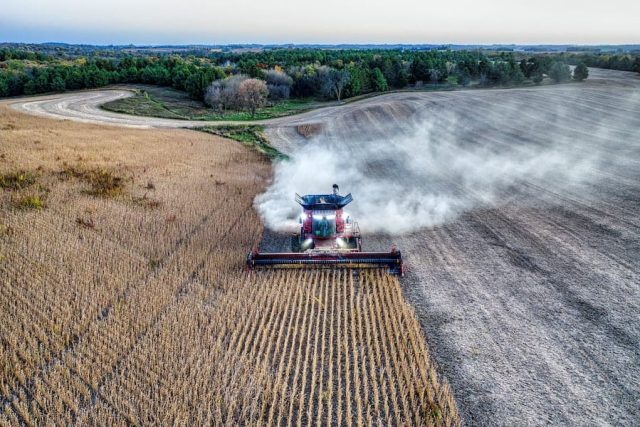Do you want to build a healthy future for your family and the environment? Sustainable farming is an excellent way to do this, as it leads to healthier soils, less pollution, improved water quality, biodiversity conservation, greater economic stability, and higher yields. It’s no wonder that sustainable farming has become increasingly popular among individuals who are looking for modern ways of adapting their lifestyles in order to limit environmental damage while still being able to feed their families effectively. In this blog post, we will explore the incredible benefits of sustainable farming – from reducing chemical inputs to creating long-term savings on resources – so that you can determine the ideal approach for meeting your agricultural needs.
What Is Sustainable Farming And Why Is It Important For The Environment
Sustainable farming is a method of agriculture that focuses on preserving the environment while producing crops and livestock. It involves using techniques that do not damage the land, water, or air and minimizing the use of pesticides, fertilizers, and energy. Sustainable farming practices are important for the environment because they help to reduce pollution, conserve natural resources, and promote biodiversity. They also ensure that the food we eat is healthy, safe, and free from harmful chemicals. By practicing sustainable farming, farmers can help to combat climate change, support local communities, and ensure the long-term viability of the land for future generations. Overall, sustainable farming is essential for the health and well-being of both people and the planet.
The Benefits Of Sustainable Agriculture For The Planet
Sustainable agriculture is the key to securing our planet’s future. It is a holistic approach that strikes a balance between environmental, social, and economic concerns in agriculture. By incorporating methods that conserve natural resources and reduce dependence on chemical fertilizers and pesticides, sustainable agriculture is much more beneficial in the long run. Farmers who adopt sustainable agriculture can not only improve their soil health and crop yields but also lower their input costs. For instance, sustainable rice farmers can use fewer energy-intensive inputs such as chemical fertilizers and instead rely on natural methods like crop rotation and composting. This helps to reduce their environmental impact while improving soil health and pest resistance over time. Moreover, by using organic and local produce, consumers can keep themselves healthy and support farmers who practice sustainable agriculture. Overall, sustainable agriculture provides a win-win for the planet and people.
How Sustainable Farming Practices Help Cut Down On Pollution
The use of sustainable farming practices has become increasingly popular as people become more aware of the impact that traditional farming methods can have on the environment. By utilizing techniques such as crop rotation, cover cropping, and reduced tillage, farmers can reduce their reliance on harmful pesticides and fertilizers. These methods not only help to protect the health of the soil and surrounding ecosystems, but they also lead to improved water quality and decreased air pollution. In addition, sustainable farming practices can help to improve the long-term profitability of small-scale farmers, ensuring the continued availability of fresh, healthy produce for generations to come. The benefits of sustainable farming go far beyond the farm, making it an important step towards a healthier planet for all.
Utilizing Natural Resources To Maximize Crop Yields
As global agriculture faces new challenges, it’s more important than ever to find ways to maximize crop yields. One potential solution lies in the earth’s natural resources. By using natural resources like sunlight, water, and soil more efficiently, farmers can increase their yields without relying on artificial fertilizers or pesticides. For example, planting crops in the right type of soil and at the right time of year can significantly boost yield without any additional effort or investment. Similarly, the use of crop rotation and cover crops can help replenish soil nutrients and reduce the risk of pests and diseases, resulting in healthier and more abundant crops. By embracing these natural solutions, farmers can not only improve their bottom line but also help care for the environment at the same time.
The Role Of Technology In Sustainable Agriculture
Technology is revolutionizing every aspect of agriculture, and sustainability is no exception. The use of technology in sustainable agriculture has been a game-changer, making the process more efficient and environmentally friendly. With precision farming techniques, farmers can apply fertilizers and pesticides more efficiently, reducing wastage and pollution. Additionally, advancements in irrigation technologies, like drip irrigation, have made it possible to conserve water resources. Controlled-environment agriculture, like hydroponics and vertical farming, is becoming increasingly popular, leading to more efficient use of space and resources. From drones to big data analysis, technology is helping farmers make informed decisions, minimize risks, and increase yields while reducing the environmental impact. It’s clear that technology is an essential part of sustainable agriculture, and it will continue to play an increasingly critical role in feeding the world in a sustainable and responsible way.
How To Start A Sustainable Farm And Reap The Benefits
Starting a sustainable farm might seem like a daunting task, but it can be a great way to live a more eco-friendly lifestyle while reaping numerous benefits. First and foremost, sustainable agriculture prioritizes the health of the land, which means that the food grown is healthier and more nutrient-rich. In addition, you’ll have the satisfaction of knowing that you’re living in a way that benefits the environment and future generations. But where do you start? Research is key – get to know your land, the crops you want to grow, and the animals you plan to raise. Use organic and natural methods to ensure your land is healthy and active, and be patient as it takes time to build a successful, sustainable farm. Remember that starting small and growing over time is perfectly fine, and take pride in the knowledge that you’re making a positive impact on your community and the planet.
After delving into the world of sustainable agriculture, it is clear to see that there are numerous benefits for both the planet and farmers, alike. From increased crop yields to reduced pollution, this greener approach to agriculture is a critical component in the fight for a healthier environment. This type of farming also relies on sustainable technology and natural resources which can help maximize efficiency while limiting unnecessary inputs. Lastly, anyone who aspires to pursue such practices should conduct further research before launching their own sustainable farm. Not only will this increase their knowledge and understanding of the subject but also allow them to reap all the benefits this movement offers. With continued success and development, we have the potential to create a better agricultural future for generations ahead!














